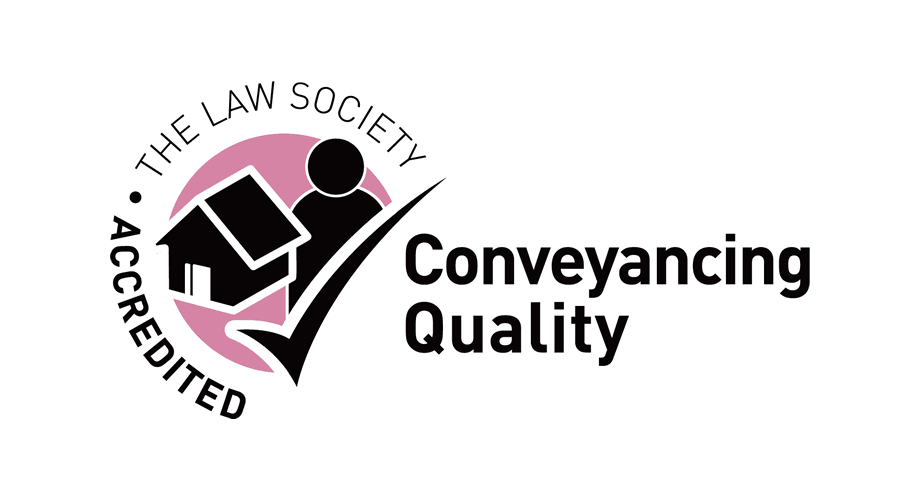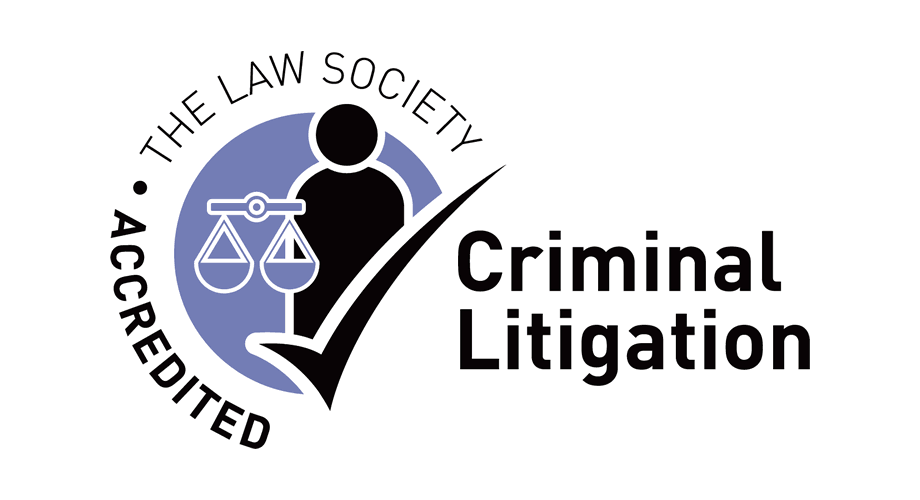0114 249 3222
01246 555 387
Abstract of Title – a document which, in unregistered land, shows the history of the ownership of a property.
Adopted Highway – a road that is maintained by the local council
Agreement – another word for the contract.
Assent – a document which is required to transfer the ownership of a property to a person who is entitled to it following the death of the owner.
Bankruptcy Search – it is an offence for someone who has been bankrupt to obtain credit where a mortgage is required and therefore this search is made against the names of the Purchasers by their solicitors to check their previous financial status.
Brine Search – this search discovers whether a property is affected by disused workings.
Boundaries – these define the extent of the property and are usually marked with fence or walls. They are usually shown on the deeds plan, marked in red.
Building Insurance – when contracts have been exchanged, if you are having a mortgage you will be required to put in place building insurance for the property. This must cover the cost of rebuilding the property if it is destroyed. Even if you are purchasing a property by way of cash, it is still advisable to put building insurance in place.
Building Regulations – approval by the local council on the design and materials of works.
Caveat Emptor – this translates as ‘buyer beware’ and means the purchaser is responsible himself/herself for discovering the condition of a property.
Chain – this is where there are a number of properties being sold and the completion of one purchase is dependent on the sale and purchase of another.
Chattels – these are items of personal property which remain at a property and included in the purchase price, e.g. furniture. These are often more fully documented in the fixtures, fittings and contents form.
Client Care Letter – solicitors will provide this correspondence at the outset of a conveyancing transaction. This will introduce the firm and give details of the work that will be carried out, as well as providing details of relevant costs.
Coal Mining Search – if a property is situated in a coal mining area, this search will be required to discover out if coal mining activities have affected the property in the past or might affect the property in the future.
Commons Registration Search – a search carried out by the local council to discover if a property is registered as common land or connected to a village green, resulting in certain rights over the property.
Completion Date – often this is the actual moving date and is formally the legal end of the conveyancing process. On this day, funds are paid as appropriate and keys are handed over.
Completion Statement – this document provides the financial breakdown for the purchase or sale and will set out the solicitors full fees including VAT and disbursements.
Conservation Area – if a property lies in a conservation area protected by a local council, it may be subject to certain planning restrictions to preserve the appearance of the area.
Contract – the legal document that records the details in respect a property purchase or sale including information regarding the property itself, the purchaser’s and the seller’s names, the purchase price, etc.
Conveyance – the name for a legal document that formally confirms the purchase or sale of a property or piece of land.
Conveyancing – the process of transferring property title from one person to another. This is usually carried out by solicitors or licensed conveyancers.
Conveyancer – specialists who assist in the conveyancing process, usually solicitors or licenced conveyancers.
Council for Licensed Conveyancers (CLC) – this is the governing body that licenses and regulates conveyancers. Always ensure that your licensed conveyancer is member of this.
Covenant – the obligations and restrictions that can be attached to a property. Some obligations will require you to maintain something, e.g. a wall, whilst restrictions prevent you from doing something, e.g. carrying out building works without certain permission.
Deed of Gift – a document transferring the ownership of a property or land from one person to another without any payment being made.
Deeds – the official documents which detail the owner of a property.
Deposit – this is the amount of money paid to a seller, usually via the solicitor or licensed conveyancer, on exchange of contracts: It is normally 10% of the purchase price although this can be negotiated.
Disbursements – fixed costs incurred in the conveyancing process which are paid by the purchaser, e.g. local search, mining search, water search, bankruptcy search, Land Registry fee, etc
Drainage Search – a search that ensures a property is connected to both fresh and foul water sewers. This search will also show how the water is chargeable, e.g. on a rateable value or on a meter.
Easement – a right of way over another piece of land.
Equity – the difference between the value of a property and the amount owed on a mortgage.
Exchange of Contracts – at this point the conveyancing is legally binding. After this time, neither the purchaser nor the seller can pull out of the transaction without financial consequences.
Fixtures, Fittings and Contents Form – completed by the seller and provided to the purchaser setting out which items, such as curtains, carpets, etc., are included in the sale and which are not.
Flying Freehold – this arises where part of a property is built on top of another, with the upper property owner not owning the building or land underneath the “flying” part. This is often seen in terrace houses where there is a “gennel”.
Freehold – this type of property involves the permanent ownership of land or building which will not revert back to another owner after a certain length of time.
Full Title Guarantee – this is a seller confirming that he/she has the authority to sell a property and that it is free from charges or adverse rights other than those that have been previously disclosed.
Ground Rent – this is paid by on where a property is leasehold, by the lessee to the lessor, in the usually annually.
HM Land Registry – the government body that deals with the ownership of property and land in England and Wales.
Indemnity Insurance – insurance to cover a defect in title or missing/lack of building/planning documents.
Identification – as of 1st March 2004, to comply with the Money Laundering Regulations, there is an obligation for a solicitor or licensed conveyance to obtain identification from a prospective client, usually in a the form of a copy of a passport or driving licence and a recent utility bill.
Index Map Search – a search undertaken at the Land Registry to discover if a property or piece of land is registered or unregistered.
Joint Tenants – a form of ownership of a property where on the death of one of the co-owners, the surviving co-owner(s) is (are) entitled to the whole ownership of the property.
Law Society – the representative body for solicitors in England and Wales.
Land Registry Fee – the fee payable to the Land Registry to register any change which affects a property, such as a change of ownership.
Lease – if a property is leasehold, this is the document that gives the lessee rights to possession of the property for term of the lease. It also details any rights and obligations.
Leasehold – a leasehold property is where a person purchases the right to occupy a property or land for a certain length of time.
Leasehold Property Information Form – a different version of the property information form that is used when dealing with leasehold properties.
Lender – someone who provides a mortgage, e.g. a bank or building society.
Lessee – if a property is leasehold the lessee is the current owner.
Lessor – if a property is leasehold the lessor is the landlord or freeholder who owns the freehold title and is entitled to ground rent under the lease and possession of the property at the end of the term of the lease term.
Limited Title Guarantee – this is the title guarantee given by a seller where, due to their limited knowledge of the property, the full title guarantee cannot be given, e.g. a personal representative of a deceased owner.
Local Search – a search carried out at the relevant local council to discover, amongst other things, whether there are any planning permissions or building regulations that affect the property, whether the road that the property is situated on is maintainable at the public expense, etc.
Mining Search – a search to discover whether a property is affected by coal mining activity which could result in subsidence.
Mortgage – a loan to buy a property or land where money is lent in return for a legal charge being registered against the property or land to ensure that the loan is repaid when the property is sold.
Mortgagee – a person or entity who provides a loan, e.g. a bank or building society.
Mortgage Deed – a document signed by a mortgagor to create a legal charge which can be registered at the Land Registry.
Mortgage Offer – the document that details the terms upon which the mortgagee is prepared to make a loan.
Mortgage Term – the length of time agreed for repayment of a loan.
Mortgagor – a person who takes out a mortgage, also known as a borrower.
Negative Equity – where the amount of money that is owed, usually through a mortgage, is greater than the value of the property.
Occupier’s Consent – this is required when a person lives at a property but does not sign the mortgage deed. Consent is required to allow a mortgage being taken out with the occupier signing to agree to move out if the mortgage company has to repossess.
Official Copies – the legal document which formally records the owner of a property. This is held by the Land Registry.
Party Wall – a wall that is owned jointly with a neighbour and maintained and repaired at a shared expense.
Planning Permission – approval by the local council to building works or a change of use of a property.
Power of Attorney – this document allows a person to act on behalf of someone as provided that that they give their consent. These are often used to protect the financial interests of people how are unable to manage their legal affairs, such as the ill or the elderly.
Pre-completion Searches – these searches are carried out before contracts are exchanged. The search results show whether a purchaser has previously been bankrupt and that the property that is to be purchased is legally owned by the seller. They are often also priority searches.
Property Information Form – the seller is required to complete this form, with it providing information regarding boundaries, disputes, building works, legal rights, restrictions, etc.
Purchase – the buying of a property or land.
Purchaser – a person or entity who buys a property or land.
Quote – an estimate of the cost of the conveyancing process, to include the solicitor’s or licensed conveyancer’s fees, VAT and disbursements.
Redemption Figure – this is the amount that is required to discharge a mortgage and is transferred to a lender when a mortgage is redeemed. It will include the amount to pay back the mortgage along with any relevant penalty fees.
Redemption Penalty – a penalty amount charged by a mortgagee when a person redeems a mortgage within a fixed rate, discounted rate or cashback period.
Registered Title – property or land which has been registered at the Land Registry.
Reservation Fee – a fee paid to a builder or property developer to reserve a new property.
Sale – the selling of a property or land.
Seller – a person or entity who sells a property of land.
Service Charge – a payment required by a lessor or managing agent to cover the costs of maintaining and running a development, e.g. gardening, decorating or also insuring a development of flats.
Smoke Control Order – an order made by a local council designating an area to be one in which only smokeless fuels can be burnt.
Solicitor – a conveyancing transaction is often undertaken by a solicitor who acts on the behalf of a seller or purchaser. Always check on the Law Society website that your solicitor has a practising certificate.
Solicitor’s Regulation Authority (SRA) – the independent body of the Law Society of England and Wales that regulates all solicitors.
Stamp Duty – this is self assessed and is the amount that all purchasers must pay to HMRC, based on a percentage of the purchase price, for purchases of property over, currently, £125,000.00.
Subsidence – where a property moves due to inadequate foundations or significant change in the underlying ground, e.g. due to previous mining, resulting in instability.
Survey – a report carried out in respect of the physical state of a property, usually by a surveyor.
Tenants in Common – a form of co-ownership where on the death of the co-owners the remaining owner(s) is (are) not automatically entitled to the deceased’s share in the property. The deceased’s share will pass in accordance with their wishes contained within their Will.
Third Party Rights – when a person other than the legal owner of a property has a right to use or control land or a property of which they have no formal ownership.
Title Deeds – these show the ownership of a property.
Transfer Deed – a legal document that transfers a property into the name of a purchaser.
Transfer of Equity – where the ownership of a share or interest in a property is transferred from one person to another.
Tree Preservation Order – an order made by the local council designating a tree or group of trees as protected and requiring their permission to cut or fell them.
Unregistered Title – where the title to a property or land has not been registered at the Land Registry and ownership is proven by documents showing ownership.
Vacant Possession – possession of a property free from the presence of any people, possession or rubbish.
Valuation – a survey to establish the market value of the property.
Wayleave Agreement – a legal agreement with the owner of a property which enables a service provider, e.g. electricity company, telephone company, water company, etc. to install piping or cabling through or over the property.
Looking for a solicitor to assist you? Contact us today


